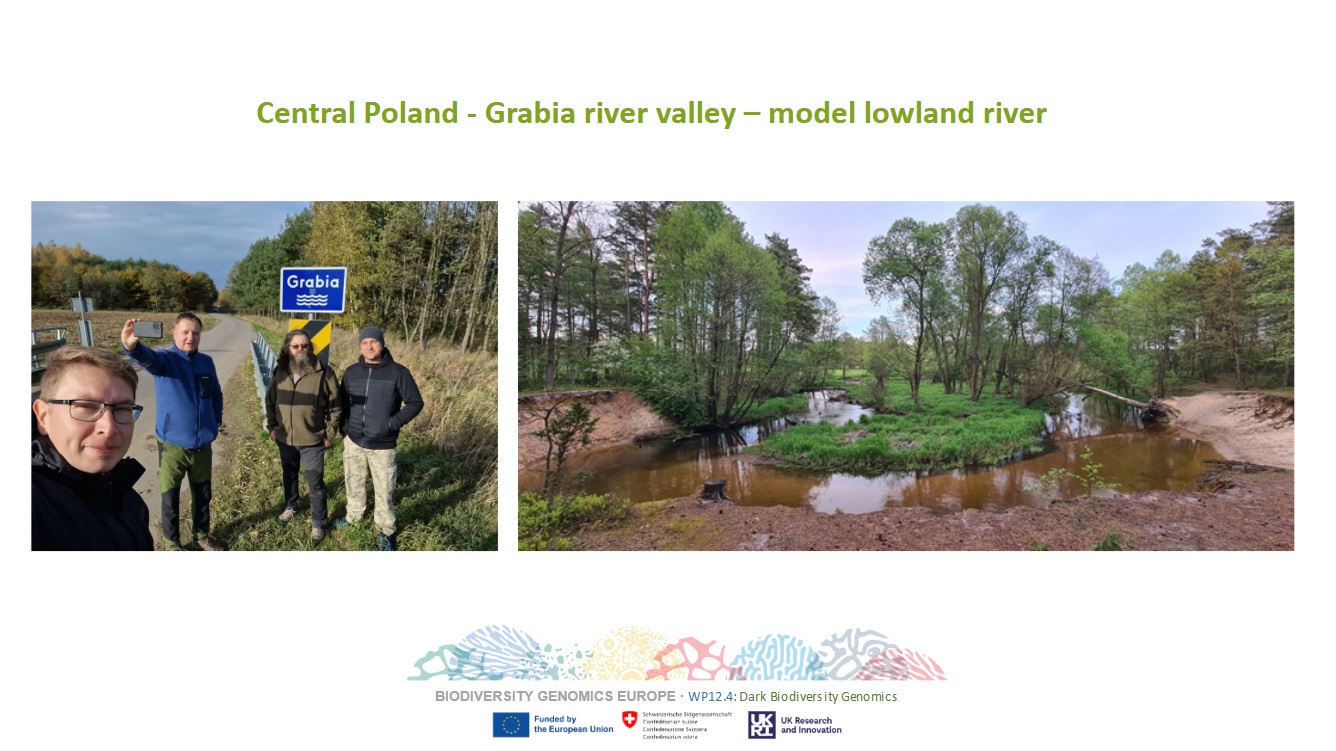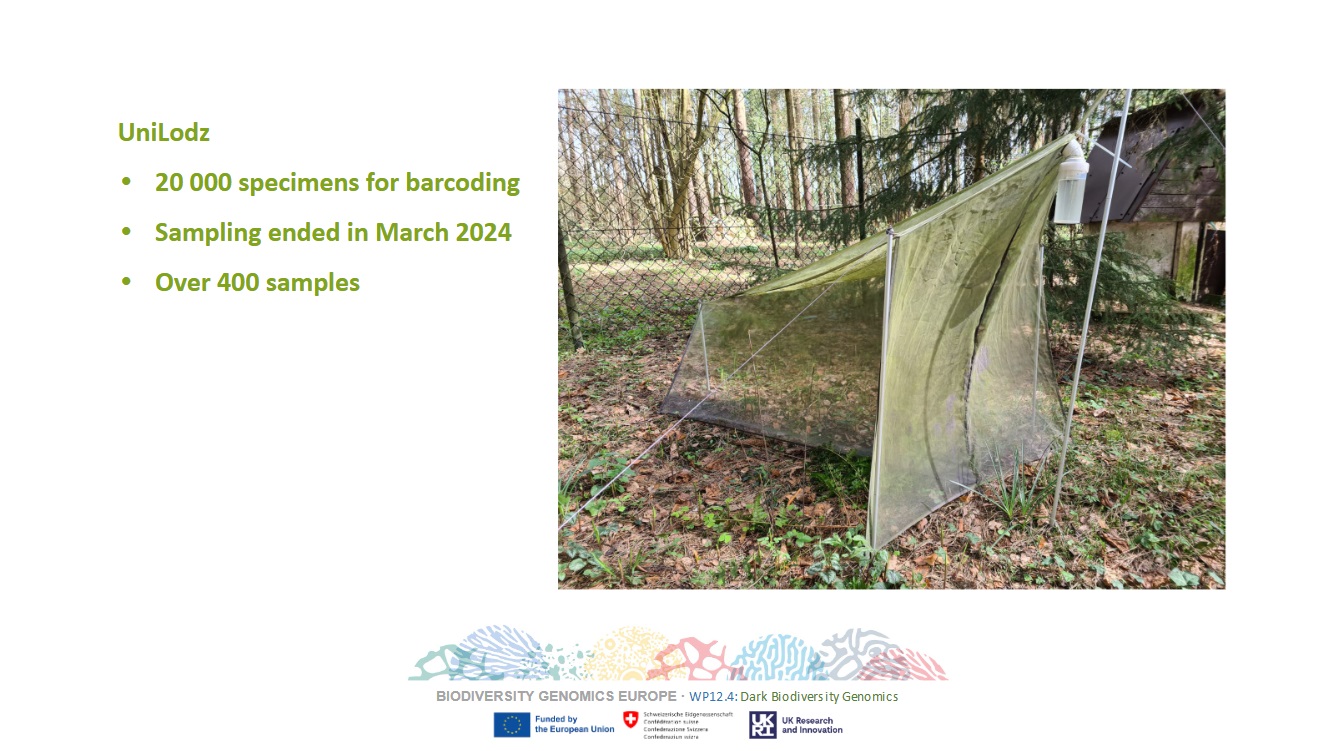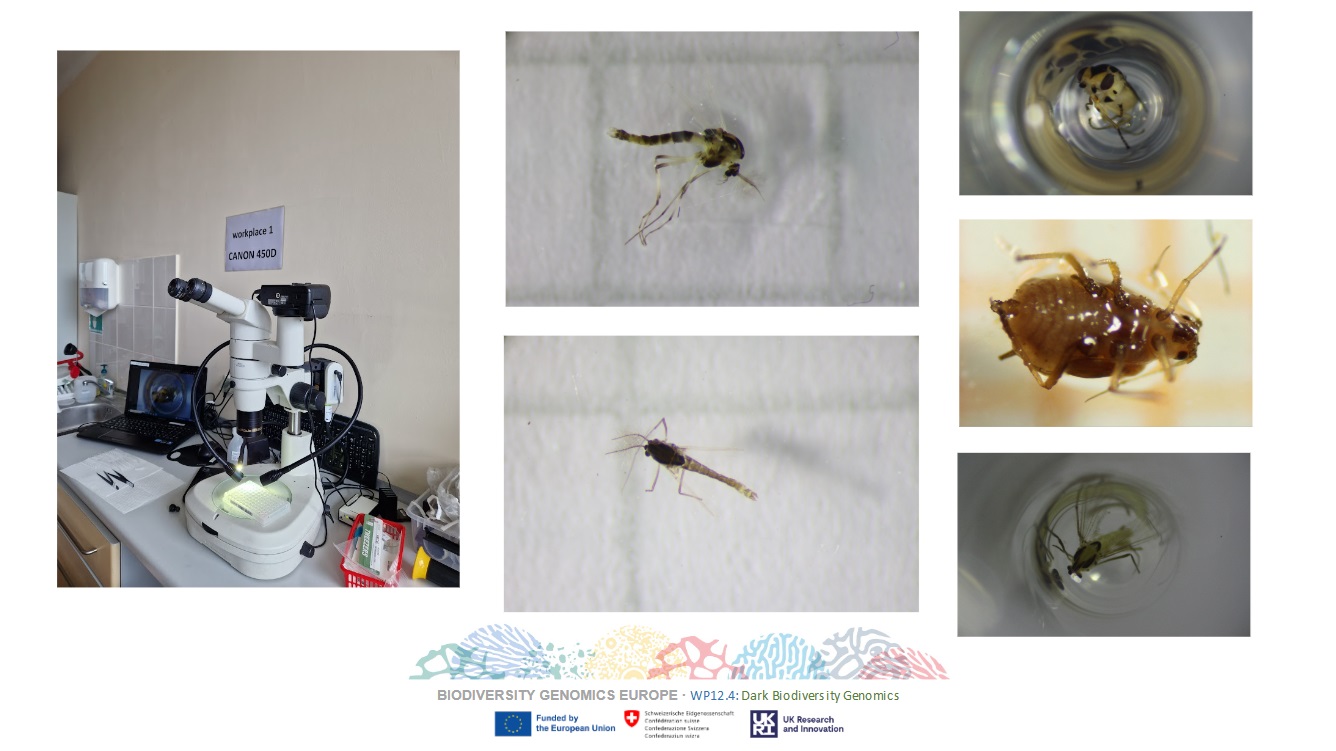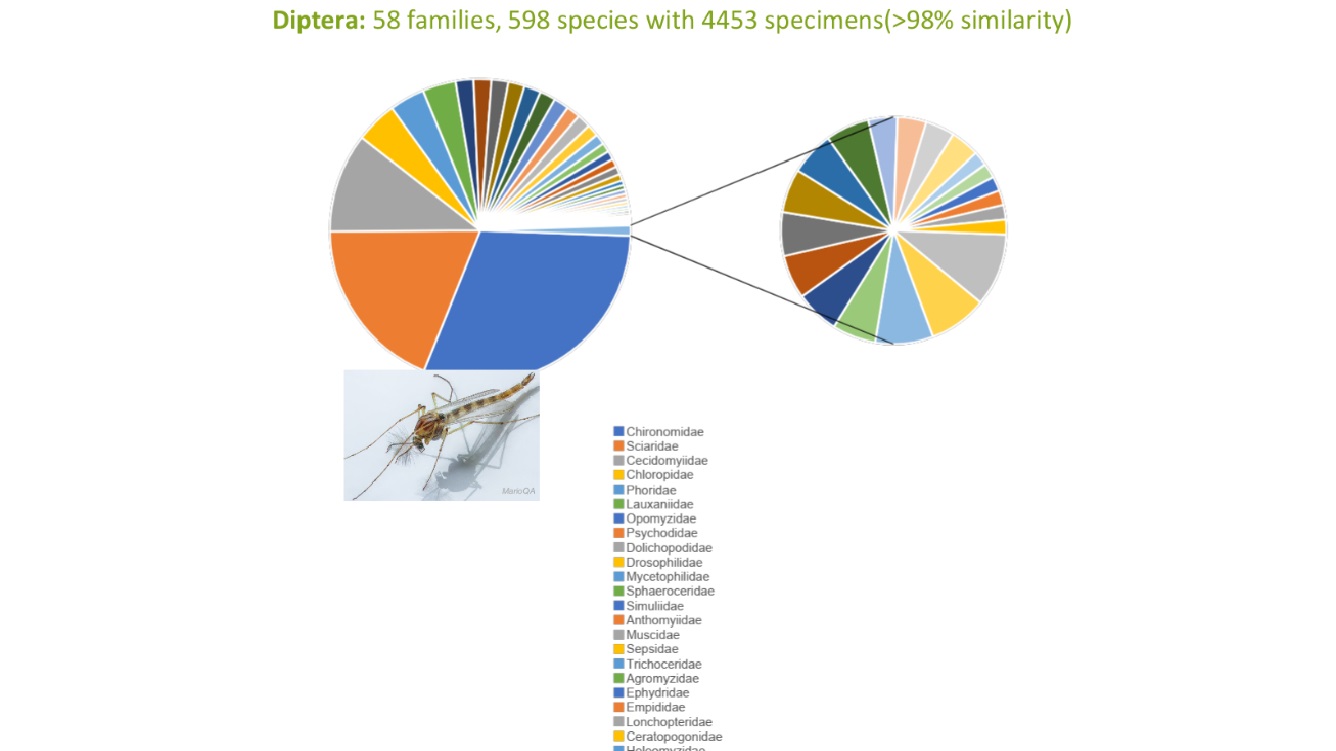On November 25, 2024, a meeting of iBOL Europe members took place. Its purpose was to discuss the current activities and achievements of this scientific network. Among the topics presented were the experiences of the Greek node GrBOL in creating a national research network, as well as plans for global monitoring of biodiversity using environmental DNA. Tomasz Mamos presented the results of the work of the Polish node iBOL (Polish Barcoding of Life - PolBOL), including our experiences in barcoding difficult to identify insect species (Dark Taxa) and the construction of a reference library of barcodes for invertebrates of a small lowland river valley in central Poland (the Grabia River).
For their participation and help with the research, we would like to thank Jakub Borys, Wiktoria Cechowicz, Krzysztof Swarzyński, Jagoda Łuczyńska, Monika Łabudzka, Piotr Falczewski, Julia Florek, Katarzyna Janiszewska, Tymoteusz Matera, Kamil Słomczyński, Ścibor Szymaniak, Natalia Wardziak, Angelika Janiszewska, Wiktoria Cybula, Aleksandra Gałuszewska, Kamila Głuchowska, Julita Nawrocka, Natalia Bereda, Jakub Grzelak, Maja Jurek, Sandra Kozłowska, Patrycja Maliszak, Paulina Starczewska, Gabriela Karlik, and Nikola Bielak.




![[Translate to English:] 1111](/fileadmin/Projekty/POLISH_BARCODE_OF_LIFE/ibol1.jpg)
